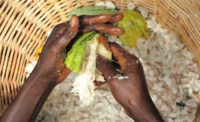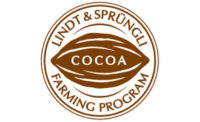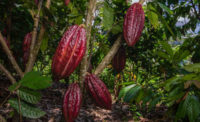The Hershey Co. has joined the ranks of major cocoa and chocolate companies prohibiting new deforestation in its global cocoa supply chain, with the goal of stopping ongoing deforestation and protecting forests in cocoa-growing regions.
The commitment includes two fundamental components:
- No new deforestation for cocoa through a strict commitment not to source cocoa from anywhere in the world where new deforestation has occurred, effective immediately.
- Agroforestry to support shade-grown cocoa through tree planting programs.
Hershey will achieve these aims through its own forest initiatives, as well as through work with the World Cocoa Foundation and its Cocoa & Forests Initiative, an industry commitment announced in 2017 to protect and help restore forests and support sustainable cocoa production and farmer livelihoods.
Hershey will develop a comprehensive forestry plan in 2018 to outline its agroforestry programs, tree-planting goals, supplier guidelines and monitoring, and timelines to achieve its forest protection and reforestation goals. The comprehensive plan will be completed and publicly shared before the end of 2018.
Hershey’s commitments will help protect forests in two ways:
- Helping to stop the illegal deforestation that has been occurring for decades, especially in National Parks and Reserves.
- Helping to rejuvenate forests impacted by farming activities.
“Deforestation in cocoa regions must end and every stakeholder in the cocoa supply chain needs to work together to protect the forests for future generations,” said Susanna Zhu, Hershey’s chief procurement officer. “We are committed to working with local governments and civil society to strike the right balance between producing cocoa for the world and conserving the precious natural ecosystem.”
Last fall, the governments of Ghana and Cote D’Ivoire, alongside major cocoa and chocolate producers, agreed to follow the Frameworks for Action, as announced at the UN Climate Change Conference in Bonn, Germany.
Central to these frameworks is a commitment against converting additional land for cocoa production, as well as eliminating illegal cocoa production in national parks. Stronger enforcement of national forest policies and development of alternative livelihoods for affected farmers are integral parts of the commitments.
Mondelēz International announced in January it will partner with the Forestry Commission of Ghana, Ghana Cocoa Board and United Nations Development Programme, to reduce deforestation and forest degradation in the country while simultaneously reducing emissions in its cocoa supply chain.





